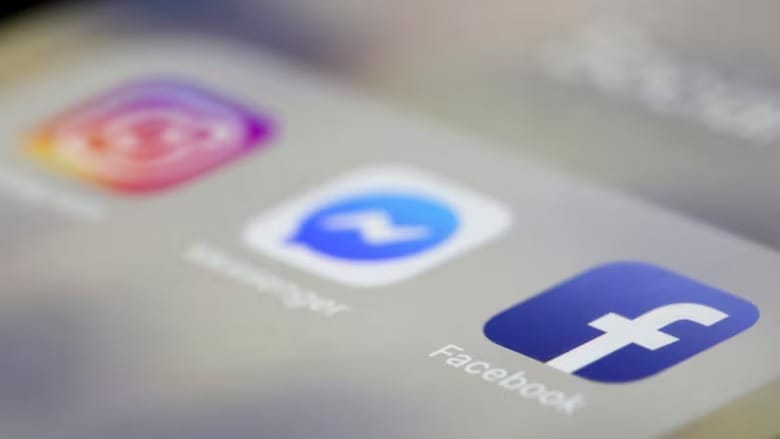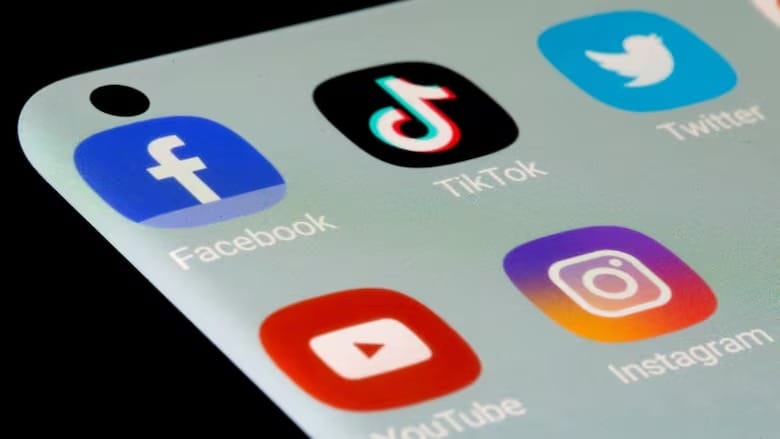Is it still 'social media' if it's overrun by AI?
'Increasingly difficult' to connect with actual humans, says analyst

In 2010, at the age of 26, Mark Zuckerberg outlined his vision for Facebook, which had already gained over 500 million users. "The primary thing that we focus on all day long is how to help people share and stay connected with their friends, family, and the people in the community around them," Zuckerberg said at the time. "That's what we care about, and that's why we started the company."
Fifteen years later, with over three billion users, Facebook’s parent company, Meta, has shifted its focus to integrating artificial intelligence-powered characters alongside users' friends and family. Some experts warn this could signal a transformation of social media as it has traditionally been understood.
For long-time users, platforms like Facebook and Instagram are becoming less social, according to technology analyst Carmi Levy. "It’s becoming increasingly difficult to connect with an actual human being," he noted.
Meta’s plans include introducing AI-generated accounts on its platforms, each with unique characteristics, including racial and sexual identities. "They'll have bios and profile pictures and be able to generate and share content," explained Connor Hayes, Meta's vice-president of product for generative AI.
Early Experiments and User Backlash
Meta began testing AI-generated accounts in 2023, but user pushback soon followed. After reports surfaced about these accounts, including one AI presenting itself as a Black queer woman developed without input from Black team members, some users initiated campaigns to block and report them. Meta later removed the profiles, citing a technical issue affecting users' ability to block them. "We are removing those accounts to fix the issue," said a company spokesperson, without confirming whether the accounts would return.
The Role of AI in Social Media
Meta isn’t the only platform embracing AI. Other platforms have launched AI-driven features, such as Snapchat’s "My AI" and X’s AI chatbot Grok. AI influencers, like Lil Miquela, are gaining traction on platforms like TikTok and Instagram, securing brand sponsorships.
AI content often garners higher engagement, which translates to increased ad revenue. A study by a social media management firm found that AI-assisted posts had higher engagement rates compared to regular posts, based on data from over a million posts.
However, Lai-Tze Fan, an associate professor at the University of Waterloo, cautioned against prioritizing AI content over meaningful interactions. "The future of social media seems to be one where content production is prioritized over social connections," she said, emphasizing that this trend contradicts the original purpose of platforms like Facebook.
Data and Social Interaction
Social media platforms operate on a trade-off: users provide data and engagement in exchange for access to the platform, while companies monetize through advertisements. Fan argued that platforms like Facebook should remain aligned with user expectations. "If people are being flooded with AI-generated content, it undermines the reasons they’re on the platform in the first place," she said.
Assistant professor Karina Vold of the University of Toronto highlighted that while AI can fulfill some social needs, it doesn’t equate to genuine social interaction. "Real social relationships require the other entity to be cognitively capable of interaction," Vold explained, likening interactions with AI to emotional connections with fictional characters.
Users may feel attached to AI-generated characters, similar to how readers connect with literary figures, but Vold clarified, "These AI chatbots are more akin to fictional entities like Santa Claus or a character in a novel."
As Meta and other platforms continue to explore AI integration, the debate over its implications for the essence of social media and genuine human connection remains ongoing.





